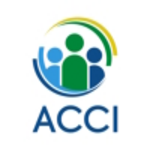
2024 Annual Conference
May 21–23, 2024
Hyatt Regency Milwaukee, Milwaukee, WI, USA
IMPORTANT NOTICE: The date, time, and room assignment of YOUR presentation is SUBJECT TO CHANGE.
Proposal authors can use this tool to see where they have been placed in the program agenda for an Oral or Poster Session.
Scroll down to search by the Submitter or Author Name, by Date/Time, or by Keywords.
Confirm your place in the schedule by following the instructionss that were emailed to you. Each presentation must have a separate paid registration. Contact the ACCI office immedicately by email at admin@consumerinterests.org to report any conflict, all corrections to the details of the presentation (including author names and the order they are listed as this is how it will be in the final program), or if you have any questions. Please be sure to reference the session title(s), date(s), and time(s) when you contact us.
H1a Balancing the Ledger of Well-being: Student Loan Debt and Mental Health
Short Description
Mental health disorders, including depression, anxiety, schizophrenia, and bipolar disorder, significantly impact around 23% of the U.S. population annually. Research consistently shows that these disorders not only affect psychological well-being of individuals but also have financial consequences such as loss of earning and lack of employment, leading to poor financial choices and debt accumulation, creating a self-perpetuating cycle where financial difficulties worsen mental health issues, further complicating financial problems. Mental health disorders can significantly affect how individuals manage and navigate the complexities of student loan debt, an issue affecting millions of borrowers in the U.S., often compounding the financial challenges they face.
We present a detailed exploration of distinct studies aimed at examining the complex relationships between five common mental health disorders and student loan debt. These studies share a unified purpose: to provide a deeper understanding of how individuals managing various mental health disorders navigate the added challenges posed by student loan debt, and to identify potential areas for intervention and support.
Type of presentation
Accepted Oral Presentation